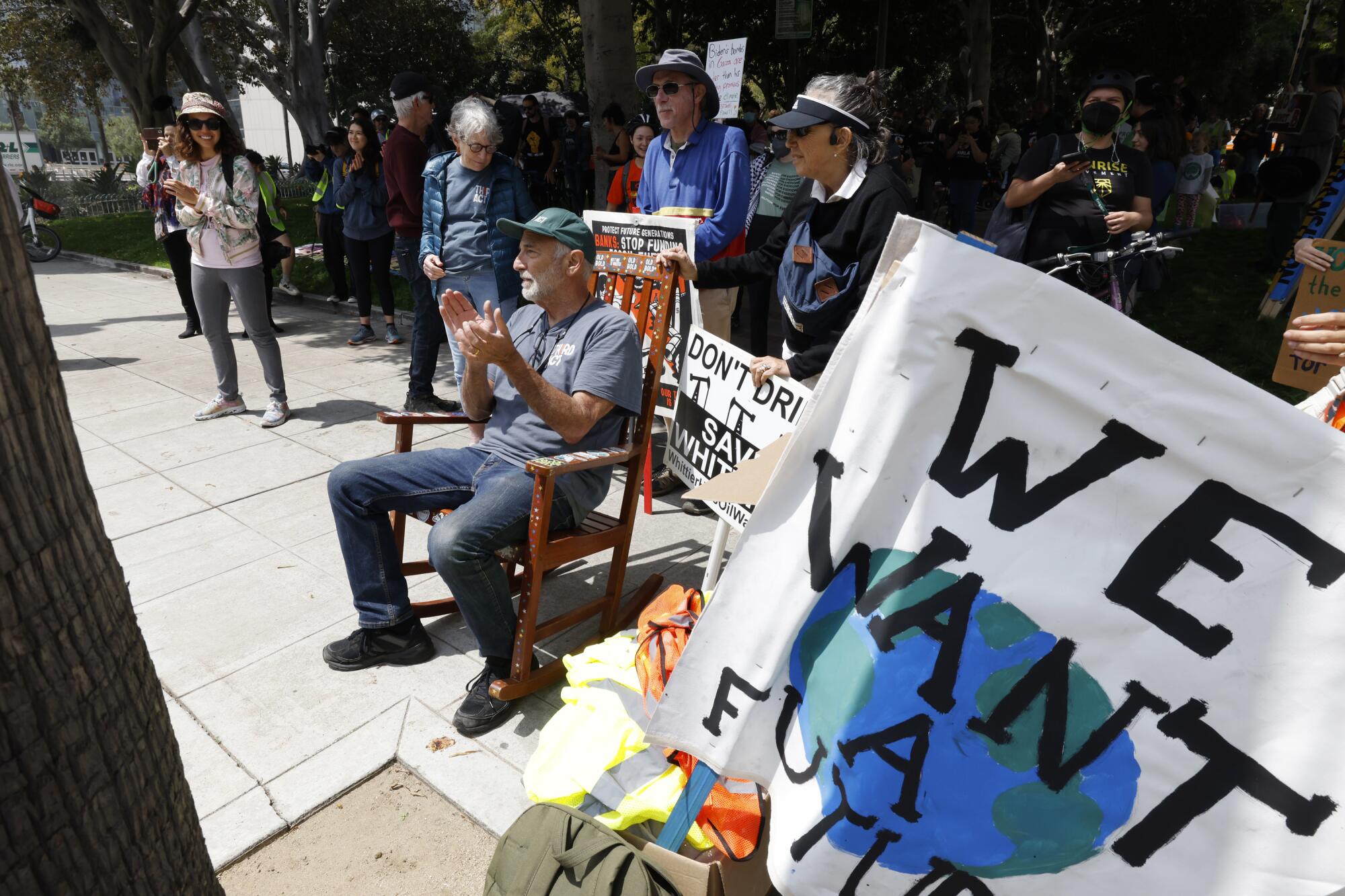
- Share via
A few days before Earth Day, a crowd of about 100 people gathered in front of Los Angeles City Hall to protest global warming and advocate for climate justice. They marched and chanted, and many carried signs calling for an end to fossil fuels.
But one of them, 70-year-old Jeff Olmstead, sat in a rocking chair.
“Global warming is a fact,” said Olmstead, who attended the protest with Third Act, an organization of people over 60 who are dedicated to the preservation of democracy and the fight against climate change. The rocking chair was a nod to his age.
“Young people here can learn from our mistakes,” Olmstead said. “We were in charge and we didn’t do the right things then. Maybe we can do the right things now.”
All too often, he and other activists say, climate change is viewed as a “young person’s problem.” After all, today’s youth are likely to bear the brunt of extreme heat, searing drought, explosive wildfires and species loss, among other rapidly worsening outcomes.
But Third Act members say it’s an “everyone problem” — and the group’s growing numbers indicate others are in agreement. The organization has about 100,000 members nationwide, including about 8,000 in Southern California.
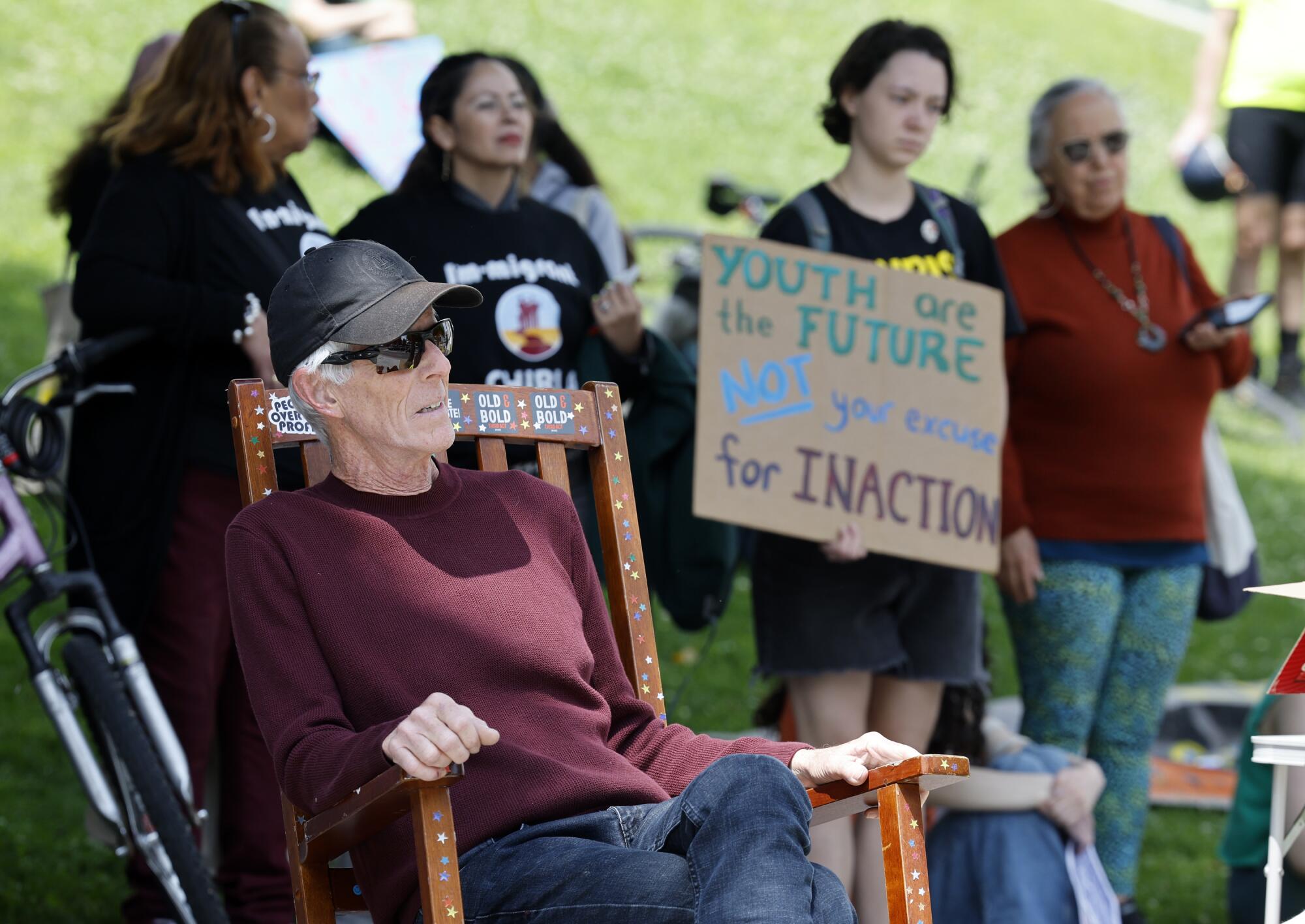
Among them is Phil Glosserman, co-chair of Third Act’s Southern California chapter, who vividly recalls the moment that inspired him to get involved in climate activism:
It was August 2020, and the skies above Los Angeles were an apocalyptic mix of black, gray and orange as dozens of wildfires burned across the city and state.
Ash was raining onto Glosserman’s car as he turned onto Pacific Coast Highway. He was on his way to visit his daughter in Humboldt County when she called and told him to turn around. The August Complex — which was mushrooming into California’s first million-acre fire — was encroaching on her neighborhood and she needed to prepare to evacuate.
“That was my aha moment, my come-to-Jesus moment,” said Glosserman, 72. “That’s when I realized it had become personal. It was affecting my daughter, and it was going to affect my kids for the rest of their lives.”
He began looking for ways to get involved, and Third Act felt like a revelation. “It just made complete sense to me to come together with people in my age group who had knowledge, wisdom, time on their hands and just understood what was going on and could fight this,” Glosserman said.
The movement continues to gain traction, with prominent climate leaders and activists such as Al Gore joining meetings and lending their support to the group.
Journalist and environmentalist Bill McKibben is Third Act’s founder and one of its loudest voices. “We’re threatening to be the first generation that leaves the world considerably worse than we found it, and I think that’s one of the reasons that people are so willing to engage in this work,” he said in a recent phone call.
McKibben said he was moved to found Third Act after he heard too many people his age say it was up to the next generation to solve these problems, which seemed “some combination of ignoble and impractical.”
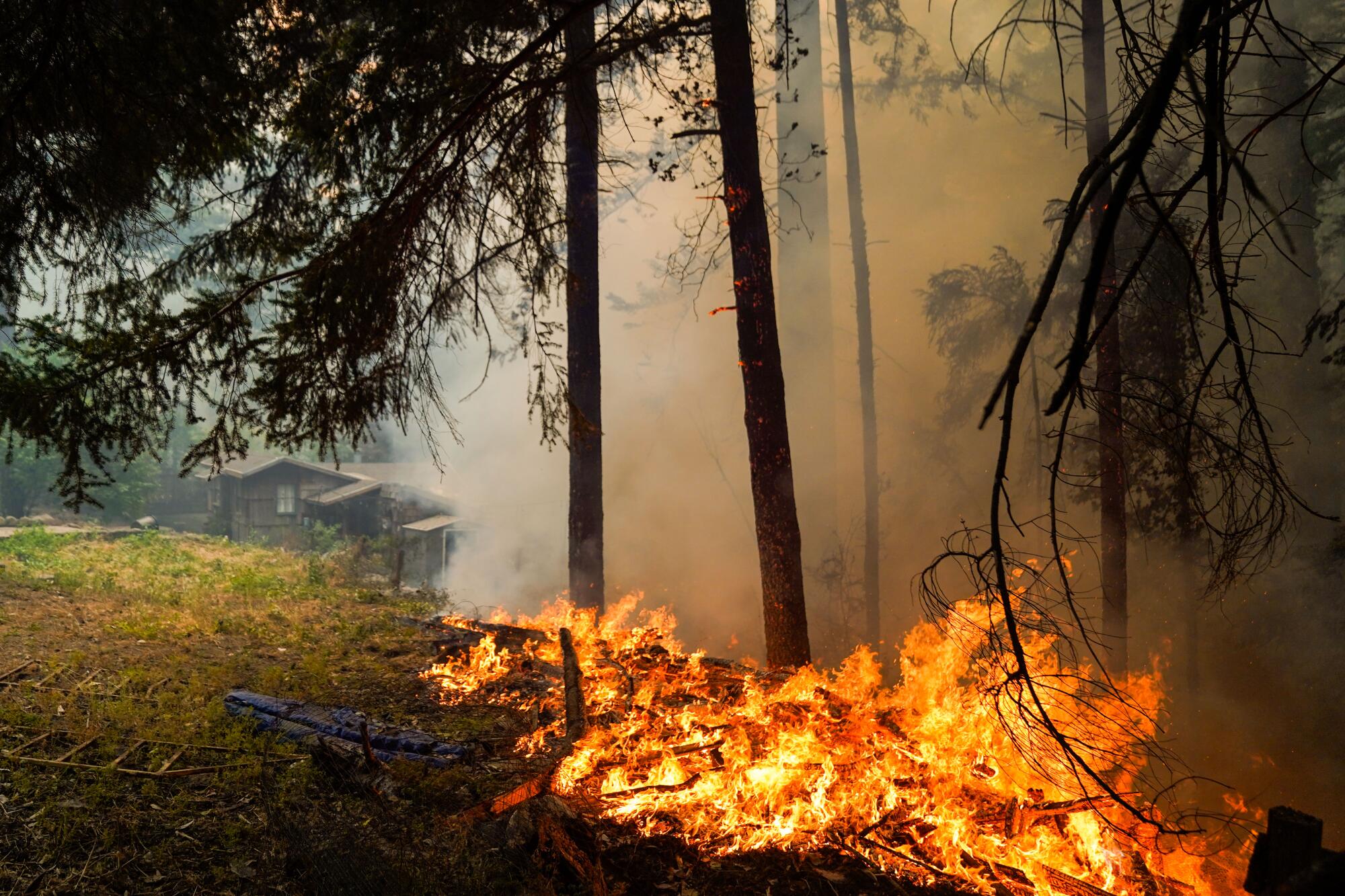
“Young people are leading these fights, but by themselves, they don’t have enough structural power” — such as the ability to wield assets and authority — “to make change on the scale we need and the time that we have,” McKibben said. “Older people have lots and lots of structural power — if you’ve reached the age where you have hair coming out your ears, you probably have structural power coming out your ears, too.”
Many Third Act members in California shared similar motivations. After all, theirs is a generation known for its ability to organize — around the Vietnam War, around civil rights, around the birth of the modern environmental movement. They know how to make change, and some are eager to share that knowledge with younger people.
“A lot of us have been working on making the world a better place since we were young adults and have not let up for a minute,” said Ann Bartz, 73, a Third Act member who lives in Long Beach. Bartz recalled starting college at UC Berkeley not long after the bloody People’s Park protest in 1969. The Vietnam War was still raging, and soon she was participating in some of the demonstrations on campus.
“There’s a lot of experience there,” Bartz said of her generation. “But it’s also been pretty satisfying to watch younger people develop their organizations and then to back them up and say, ‘We’re here for you if there’s anything you want to know. If you want us to just show up and swell your numbers in a legislator’s office or on the street, we want to do that.’”
Third Act members — people with backgrounds in, say, law, science and communications — also bring with them decades of workplace experience that they can apply to climate issues, she said. What’s more, while some young people are worried that acts of civil disobedience might hinder their chances of getting a job down the line, that’s not a concern for people who are retired.
The effort is appreciated. At the protest in downtown L.A., 22-year-old Johanna Speiser said climate change is always on her mind. She noted that 2023 was the planet’s hottest year ever recorded and said she was grateful to see Third Act members there lending their support.
“Climate change affects everyone,” Speiser said as she carried a sign that read CLIMATE EMERGENCY. “We need generations pulling together. It’s the future for young people, but older people suffer more from extreme heat.”
Nearby, 20-year-old Frank Granda, a member of the climate group Fridays for the Future, nodded in agreement. “Seeing older people here gives us a sense of solidarity,” he said.
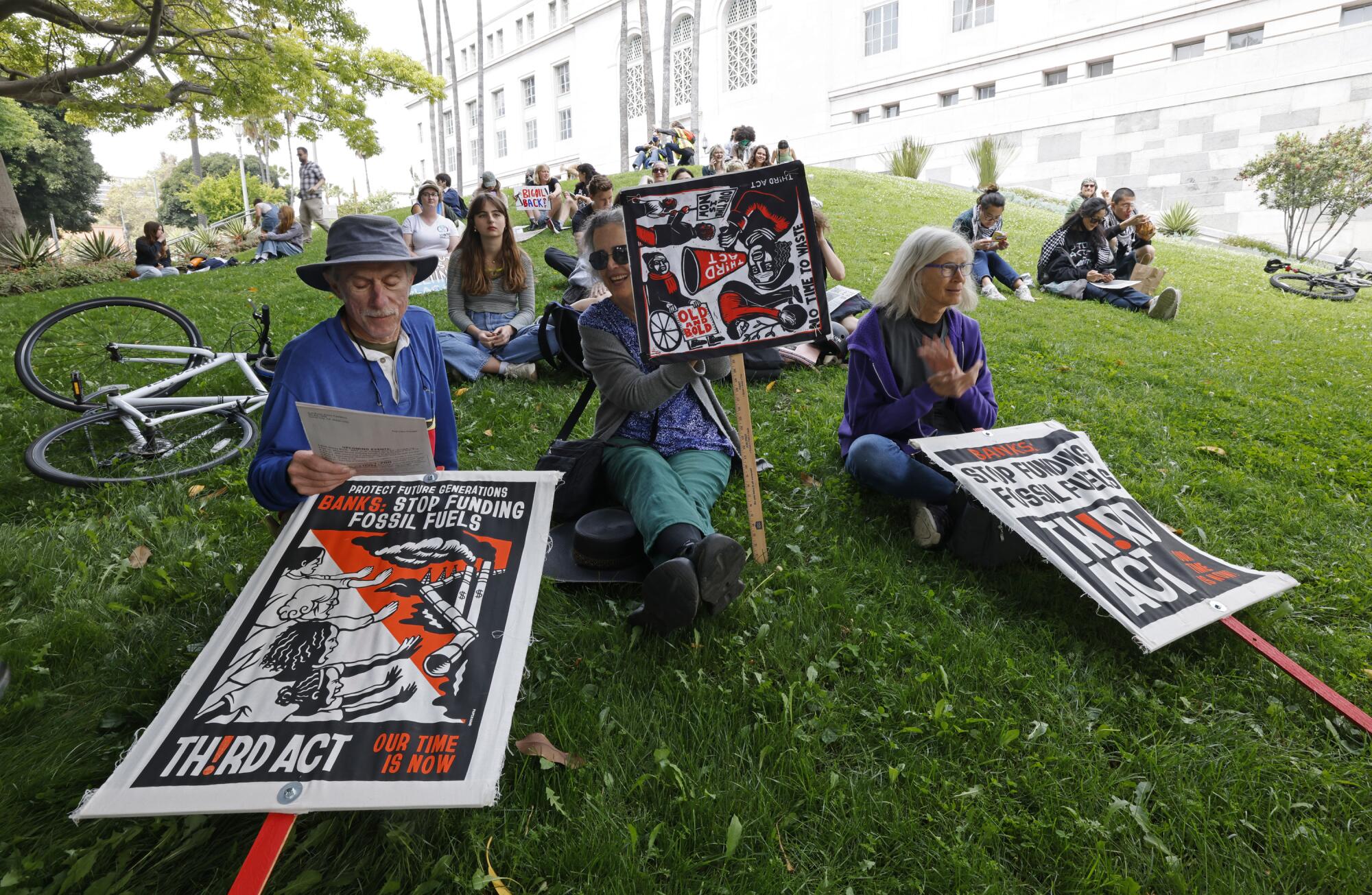
But it’s not only about looking ahead. It’s also about acknowledging some culpability for previous generations’ role in the climate crisis, according to Bruce Hamilton, 73, a Third Act member who lives in Berkeley.
“We’re the ones that didn’t solve the problems on our watch,” Hamilton said. “They got worse. And I don’t want to just hand it over and say, ‘Well, I’m going to play golf, and you guys figure it out.’”
Hamilton, who spent 44 years with the Sierra Club before retiring in 2021, said he was motivated to join Third Act because of his decades of work in wilderness preservation. He came to realize that simply focusing on conservancy is no longer a sufficient strategy for protecting precious places — accelerating heat waves, wildfires, drought and other magnifying forces don’t care about protective fences or other physical boundaries.
He said it’s important to think bigger — and that includes recognizing the power that older generations hold. It is a group with major political influence, both as a voting bloc and as the largest asset-holders in the nation, representing nearly 70% of the country’s financial assets.
Third Act has already used some of that sway to orchestrate a campaign urging people to remove their money from Citibank, Chase, Bank of America and Wells Fargo due to their lending practices around oil drilling and fossil fuels. More than 36,000 people nationwide have signed their pledge since the campaign launched last year, including hundreds who cut up their credit cards on the official day of action in 2023, officials said.
Letter-writing, phone-banking and community organizing are among several strategies used by Third Act, which is organized into small chapters and working groups across more than two dozen states. The volunteer-led groups also engage in local and national campaigns, host meetings and events, and gather regularly to share information and ideas.
Members said the group also played a role in persuading the Biden administration to pause new export permits for liquefied natural gas earlier this year. In fact, some members of Third Act said they were surprised by the ambition of President Biden’s climate package — the Inflation Reduction Act — which has been touted as some of the most progressive climate legislation of all time.
The group largely threw its support behind Biden during his campaign for reelection, and has since organized around Kamala Harris.
“The best thing you can do for climate change at this moment is keep Donald Trump out of office,” said Dennis Higgins, 69, a Third Act member who joined the protest in downtown L.A.
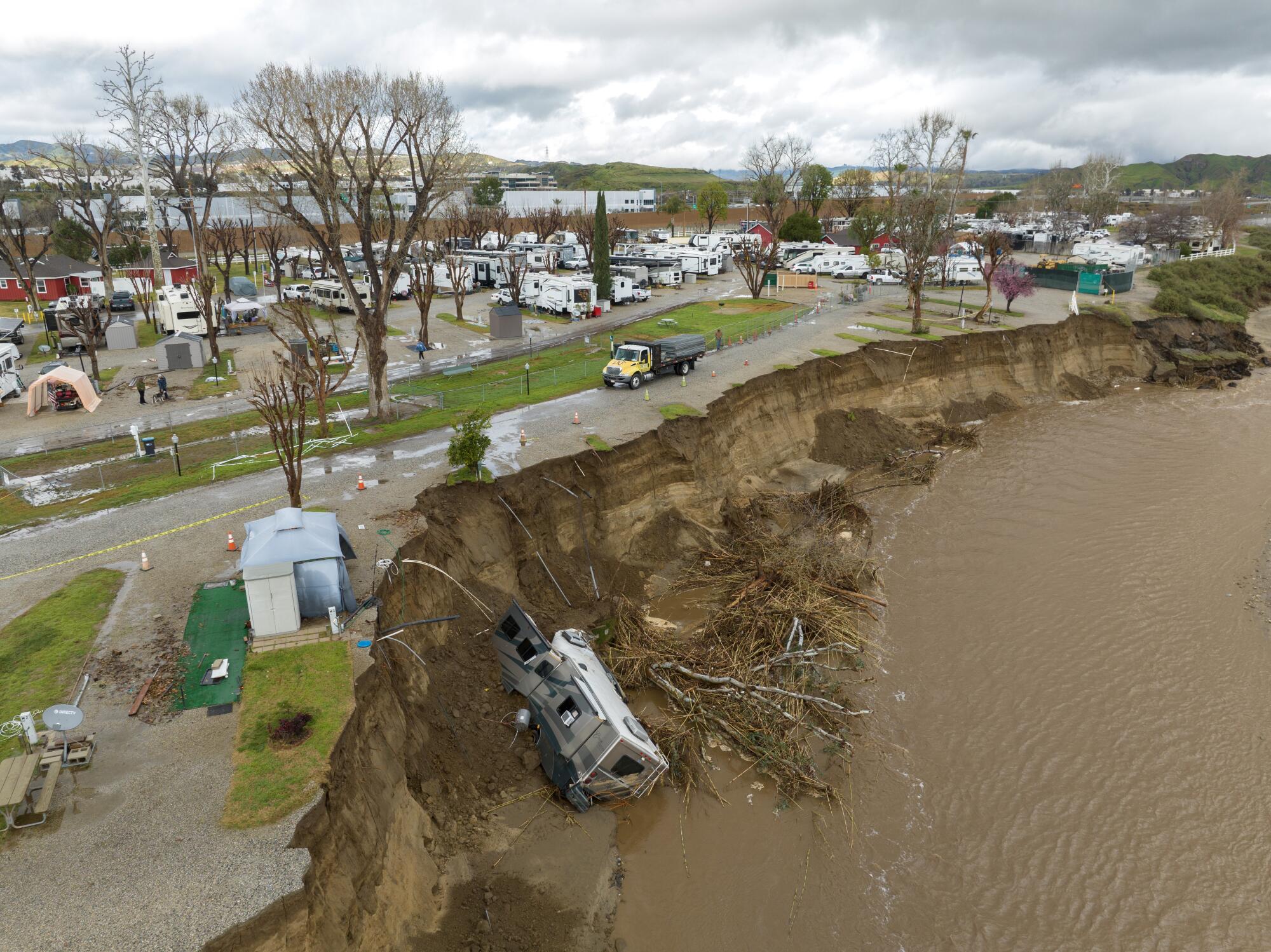
That’s partly why the group is equally as dedicated to political organizing as it is combating global warming. Many Third Act members see the preservation of democracy as inseparable from their environmental work, and the group regularly organizes a “senior-to-senior” program that involves seniors helping high school seniors register to vote.
“We are old, we won’t suffer the worst effects, but our kids will,” Higgins said. “It’s very tough. You feel the temperature rising, you see the changing weather patterns, you know that’s happening. But I do think we’re making progress — there are people I would have talked to a year ago who would have dismissed this a lot quicker than they do now.”
Glosserman said the Southern California chapter of Third Act is also actively involved in five congressional districts where they believe they have a chance to flip the House and elect climate-forward candidates, including districts in Los Angeles, Orange and Riverside counties.
Currently, one of their biggest legislative pushes is around Senate Bill 252, which would prohibit some state pension and retirement funds, including the California Public Employees’ Retirement System and the California State Teachers’ Retirement System, from investing in fossil fuel companies. Third Act members called and messaged their representatives about the legislation, and later met with the bill’s author, Sen. Lena Gonzalez (D-Long Beach), who said their efforts were making a difference.
“I want to thank you for being such incredible advocates,” she told a group of nearly 60 attendees during a recent Zoom meeting. “I would just ask you to keep pressing on, to keep pushing, especially as pension beneficiaries — whether now or in future years — and to keep fighting, because we will get this through the finish line.”
But while a sense of energy and optimism radiates through the group, many Third Act members also appreciate that the climate crisis can be difficult for some people to come to terms with.
“My dad died just a few years ago, and he was never able to accept the idea that the world was slipping into climate chaos,” Bartz said. “It was very clear to me that for him to really face that, he would have to feel a lot of grief, because he was also born in California and grew up here.”
McKibben said grief, guilt, anger and sadness are all appropriate responses to the climate crisis, but those feelings are only so useful. He’s more interested in the notion that this is a moment for “adventure and opportunity” and said the necessary transition to a new energy system can also be reason for excitement.
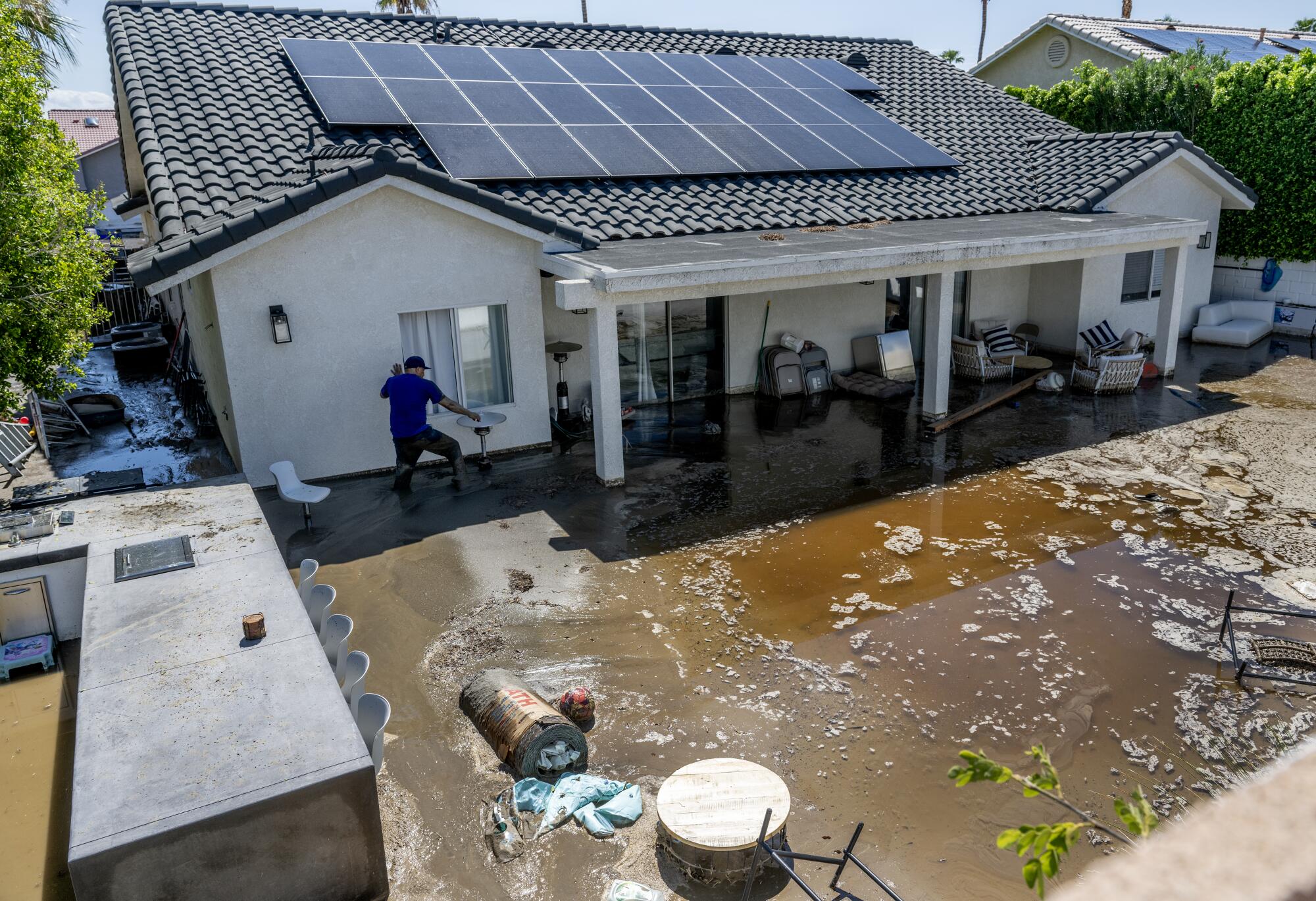
“I do think that we probably need to recapture some of the spirit that we remember from the moonshot days” of the 1960s, he said.
Back at the protest, people of all ages milled about with a similar sense of solidarity. One young person held a sign reading, “We want a future,” while a Third Act member held one that read, “Stop robbing my granddaughter’s future.”
Shekinah Deocares, a member of the group Youth Climate Strike Los Angeles who helped organize the event, said it was great to see the community come together, and that “having folks from all ages come out today is uplifting.”
Lu Lipmen, 12, also expressed gratitude for the support of older generations.
“I know there are some people who don’t believe in this kind of stuff. But there are people of all different generations, especially older people and people who are younger, who are closer to my age, who want action and who want to save the world,” said Lu, who attended the event with their father.
But even Glosserman, a tireless organizer, acknowledged that he sometimes grapples with an internal tug-of-war between optimism and worry about the future. Some days he fears they’re too late to make a difference, but more often, he realizes that such thinking is an abdication of responsibility.
In fact, doing the work and meeting like-minded people has given him a great deal of joy that he hopes to impart on others — even in the darkest moments when the sky turns black and orange, and ash rains down from above.
He referenced the words of another activist of his generation, Joan Baez.
“Action,” he said, “is the antidote for despair.”








